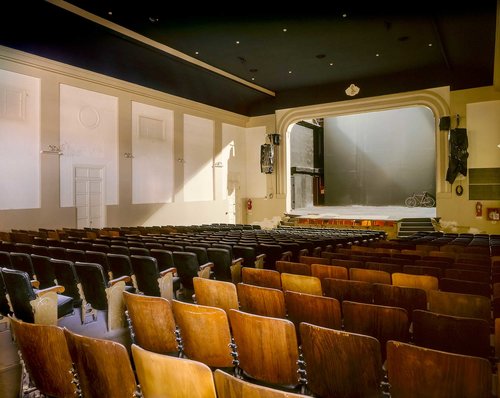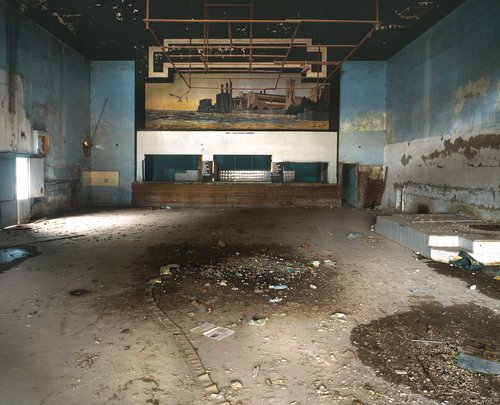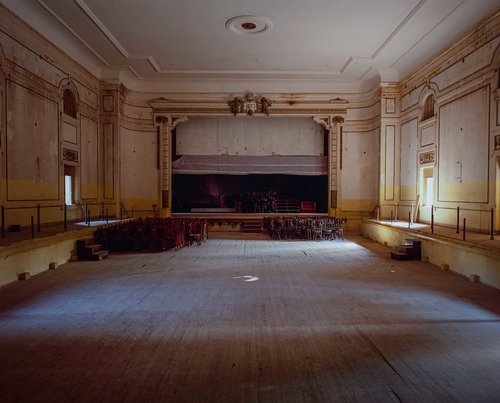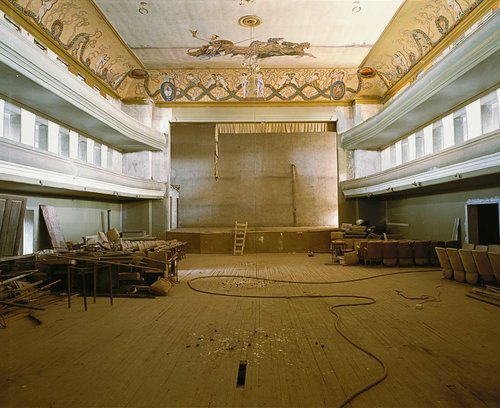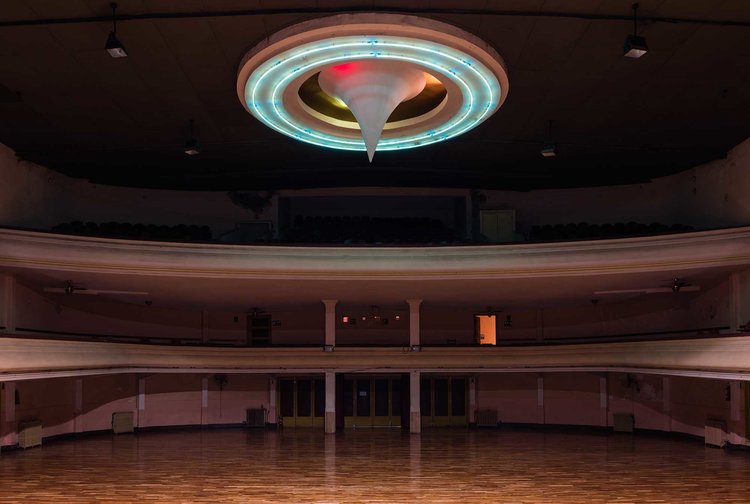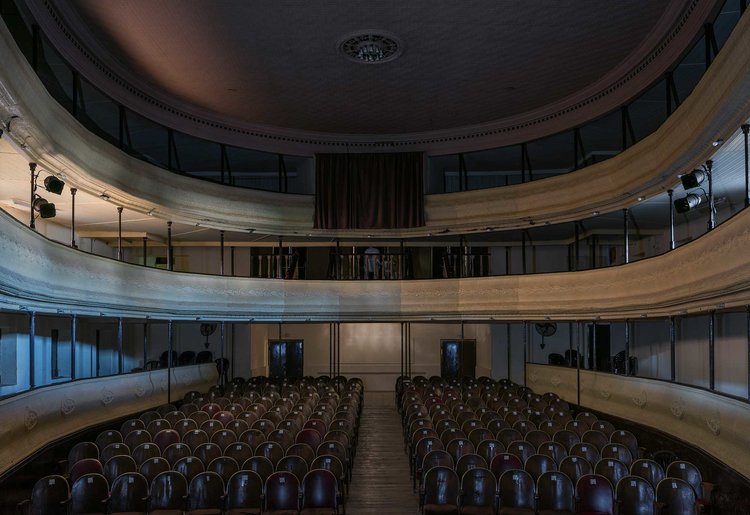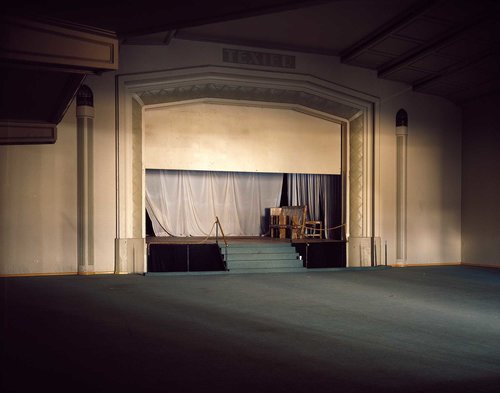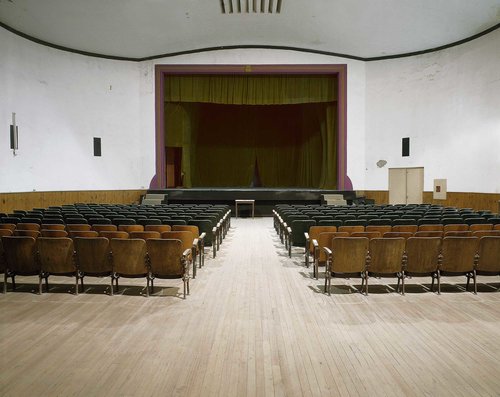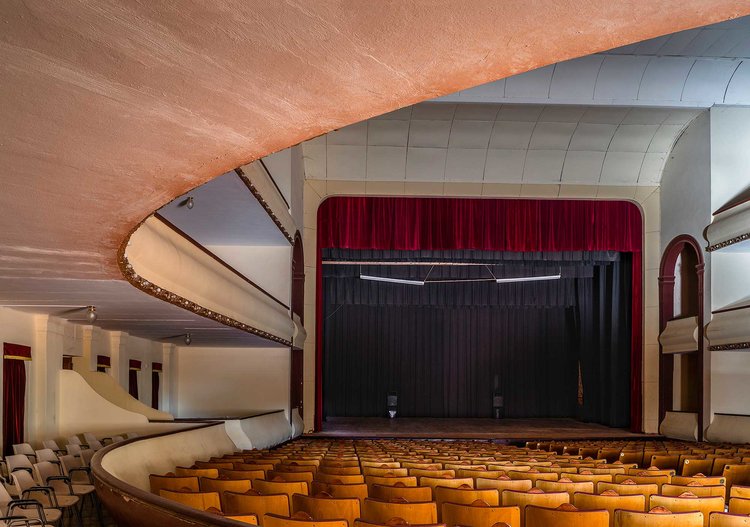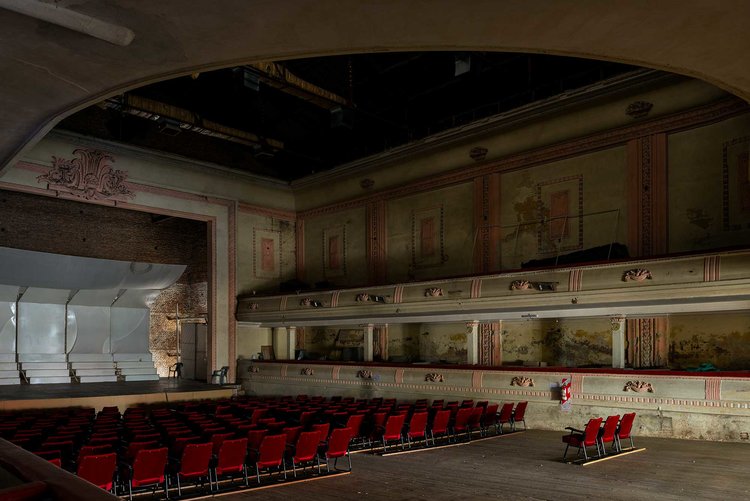CINETEATRO
BY ESTELA IZUEL
Estela Izuel (Argentina, 1966) is an award winning photographer who works in personal-essay photography.
She graduated from the Universidad Nacional de La Plata and has received the National Art Fund Grant in 2012, a Grant for artistic creation from the Antorchas Foundation, and participated at the Fotofest portfolio review (Houston). Estela has received the 1º Chandon Cultural Award from the Caraffa Art Museum, the 2º Prize from the “VI Klemm Foundation for Visual Arts Award”.
Izuel's work was presented at ArteBA, by Fundación del Banco Provincia de Buenos Aires. She has exhibited at the Salón Nacional de Artes Visuales, Buenos Aires Photo: Petrobras Award, Fundación Andreani Award, Museo Caraffa, Senado de la provincia de Buenos Aires, Museo de Arte Moderno (MAMBA), Centro Cultural Ricardo Rojas.
Her works have been acquired by Museo Caraffa, Museo de Bellas Artes de Buenos Aires, Fundación Federico Klemm, Museo de las Américas (Denver) and private collections from Argentina, Chile and USA.
Synopsis
"Faced with a threatened existence, the record of images is basic. Hence the picture is the right way to fix a far away time.
To Estela Izuel, theaters are not only the reason. The images shown do not refer to life as theatre, we only found a speculative, distant registration. Inside them, recorded with objective eye, focuses on the relationship between space use and men who are gone. The absence of people is strange, is that we have never seen an illuminated and empty theater. No event, no action, only the state of things. The void left when customs change.
Images are not the record of physical space. They are traces of social habits that have passed; and that she photographs. Empty rigorously environments that surround us and invite to look at them again.
But the axial gaze is diverted; and subjectivity emerges. This marks the tension between public space, private space and dramatic space. Because a foreshorten view shows a private look.
The theatre is not in the dramatic action that happens but in architecture. A frozen scene leads us inevitably to the narration of the events that happened."
Dardo Arbide

